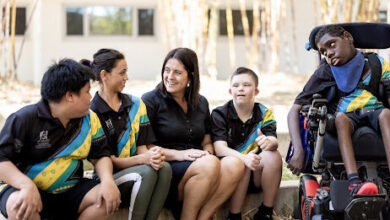Where is the funding for support staff pay rise?
The MoE has yet to clarify how schools will afford the new pay increase and Term 1 is around the corner.

School support staff voted late last year to accept collective agreement offers from the Ministry of Education, with the Living Wage of $21.15 as the new minimum pay rate.
This settlement represented a significant 19.5% increase for those support staff and kaiārahi i te reo currently on the minimum wage. While the offers were ratified on 14 December, pay changes effective 29 November, the rates will not be implemented until March this year and back-paid “because of the complex changes to the payroll that will be required”, according to NZEI. The agreements are for a term of 26 months.
Some schools have grown anxious about how they will afford the new rates and called on the Ministry of Education to make some sort of announcement before the start of Term 1.
So far, the most recent comments from the Ministry advise schools that the new funds will come from “additional funding that will be provided to boards in their quarterly operational funding payments” and from the 1.8% operational granting increase that was also announced last year.
Principal of Auckland’s Ahuroa School Michelle Nell told Stuff this information has not been enough to factor new budgets in for 2020. “If it has be paid out of the 1.8 per cent operational grant increase – that’s not even inflation,” she told the site. “So we have to take money out of what we would normally be spending on kids.”
Support staff include teacher aides, administration staff, librarians, kaiārahi i te reo, therapists and technicians in primary, intermediate and secondary schools. All other support staff currently earning at or above $21.15 per hour will receive an increase of 3% on printed rates and all members will receive a further 3% increase on printed rates in 12 months’ time.
Ally Kemplen, an Auckland teacher aide on the NZEI Te Riu Roa negotiating team, said the new rates were much needed as 90% of teacher aides are currently earning less than the Living Wage. She said:
“Our focus is now heavily on pay equity claims for various support staff groups. For teacher aides this will include working on a new pay scale and equitable pay rates that take account of experience, skills and responsibility.”
“Another major focus of this pay equity work will be providing secure, sustainable and permanent employment for support staff through a new funding model. We will also be pushing for more career development opportunities.
While the lack of clarity has schools concerned, the Ministry has said it will confirm additional funding to secure the settlement by the end of January. For now, stay tuned!
Overview of the collective agreement settlement
NZEI also added that the new rates will be funded from new money to be provided to boards of trustees through the operations grant. Positions funded to support individual children on the Ongoing Resourcing Scheme (ORS) will also be covered.
The settlement includes a professional learning and development fund of $500,000 a year from 1 July 2020 to fund a pilot teacher aide learning and development fund.
The offer also responds to several of our other claims. This includes funding for cultural leave for support staff participating in Te Matatini, an increase in the motor vehicle allowance to align with the rate payable to teachers and principals, revision of the overnight allowance to ensure members receive their correct entitlements, and renaming the dirty work allowance the “tiaki” allowance.
The offer also includes a commitment to immediate work on the administration and kaiarahi pay equity claims. The full terms of settlement can be found here.









